Trade CFDs on the price of global indices, such as the US 500, UK 100 and Germany 40.
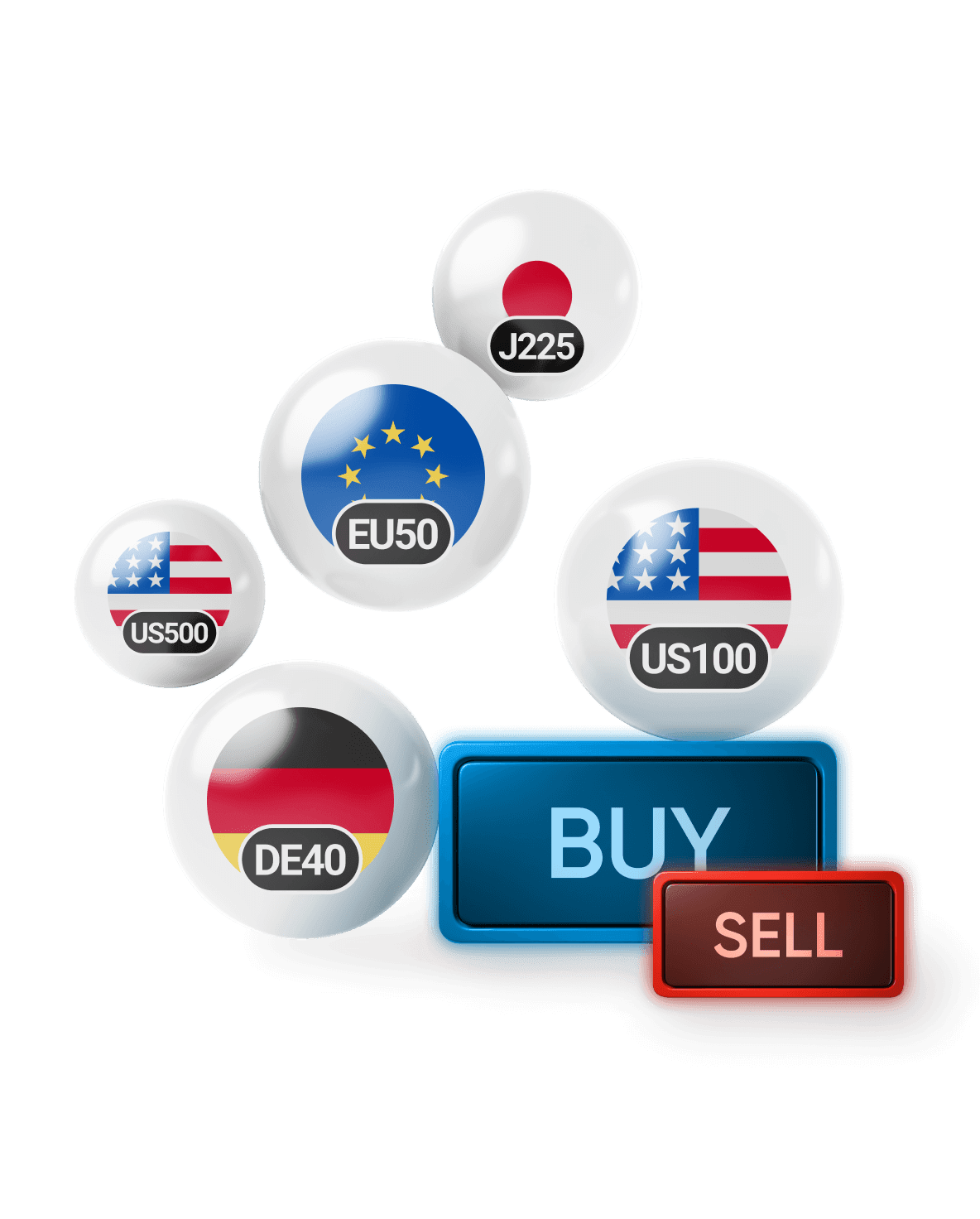
Indices are financial instruments that track the performance of a group of assets, such as equities. So trading on indices means getting exposure to a whole group of assets with a single trade.
By tracking the performance of a large group of shares, a stock index aims to reflect the state of a broader market. There are stock indices that represent the stock market of a whole country, such as the S&P 500, and those that represent a specific sector, such as the NASDAQ Biotechnology Index which consists of about 200 firms in the biotechnology industry.
This means that indices tend to be diversified, and you’re effectively getting access to a whole sector or economy with a single trade. Those who are new to financial markets often start with index trading rather than a specific stock or other asset.
As an index is a measure rather than a tangible thing, it cannot be bought outright: you cannot buy a portion of the FTSE 100, for example. Instead you’d need to buy shares in all of its constituent companies, in the representative proportions.
Trading makes indices more accessible, by giving you exposure to their price movements without having to own any of their constituents. This means you can get exposure to an entire sector or economy with a single trade, and instantly diversify your portfolio. As you’re not owning the underlying asset, you can also go short as easily as long. Many trading providers continue to price indices after the market closes, too, meaning they are tradable 24 hours a day, seven days a week.
We offer CFD trading on a range of global indices, with out-of-hours pricing that means you can trade many of them around the clock. Use our smart tools and comprehensive education to assist you in trading indices at your own pace, or integrate with leading third-party tech such as TradingView and MT4.
Identify potential entry and exit points with our smart, intuitive charting tools, and set price alerts to notify you of significant market moves. Protect yourself against adverse market moves with our range of risk-management tools, including trailing stops which lock in positive market moves while protecting against losses.*
Learn more about how to trade indices
*Stop-losses may not be guaranteed.
Gain deeper insights into indices trading – including today's top index risers, biggest fallers, and the most volatile indices across global markets.



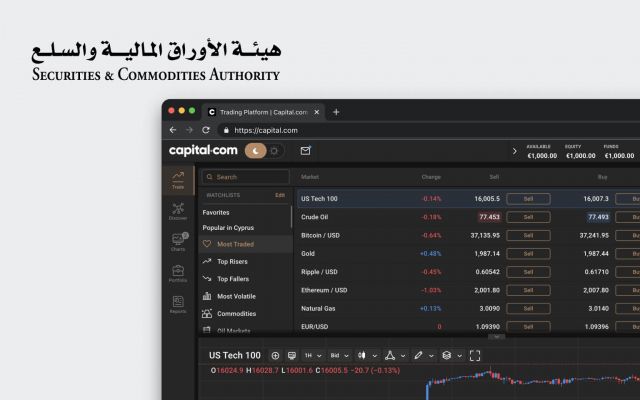

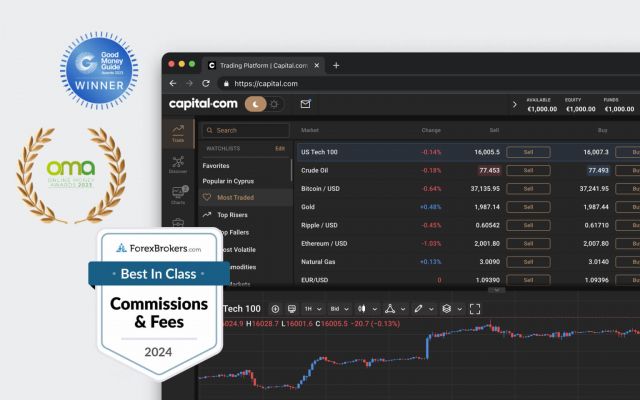

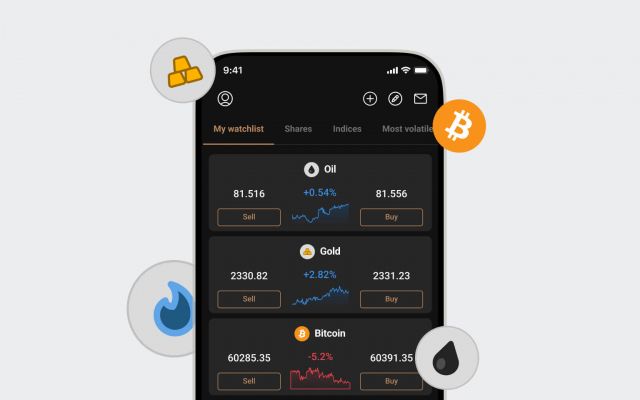
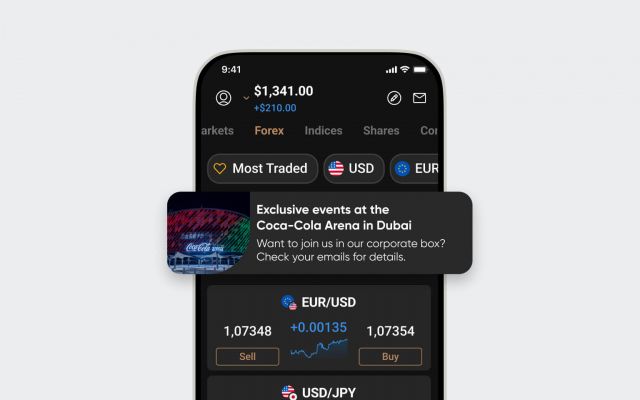
Great customer service I got to say that. They helped get my account back very fast, after i logged myself out by losing my old email, it was so fast you wouldn’t believe it thank you once again.
I'm learning the basics of stock investing. This platform is clear and pretty good. I've been using it for over 6 months.
Capital is really great to be used on start, also beginner friendly broker! Great costumer support and it is quick!
Capital.com has been great for both learning and trading. The app is clean, fast, and packed with useful tools. Customer support has been solid too. Definitely recommended for beginners and active traders alike.
Deposits and withdrawals work without issues. Very low spreads. No noticeable fees. Easy to follow.
The app is built to make options and figures easy to understand, great for beginners and intermediate traders. Demo accounts are simple to set up. 100:1 leverage is available.
I am extremely happy with this broker. Great spreads, good selection of instruments, well coded toolbox.
Love the TV integration. Makes traders life smooth and comfortable.
I would like to express a huge thank you to Evgeniya Logvinovich, customer service manager. For your attention and heartfelt attitude to your clients.❤️
Everything worked as expected from the 1 day. I didn’t have to search how to use the platform, it’s intuitive. The support chat was there when I had a tiny issue.
I trade every day and Capital is my beloved home. I also create music and you can always feel when something has been created from the heart. Capital has soul!
I’d been paper trading for 2yrs now, went live and this platform is easy for beginners to understand and navigate all important tools to execute all that I learned. Earning now!
This application is perfect.. simple, easy to use, run smoothly and fast and it has an accurate graphics.. be careful to use only one credit card and one bank account to prevent any withdrawal problem.. overnight fees and spread variation will be repaid for you by the next month.. I used many application but this is the best one
The best trading company I've found so far and so easy to use.
User friendly app & interface and good support team. Funds transfer ease & Leverage is an advantage but crypto is highly risky be responsible of your loss limits and risks appetite.
Showing our 4 & 5 star reviews across TradingView, App Store, Google Play and Trustpilot.
Why choose Capital.com? Our numbers speak for themselves
Capital.com Group
